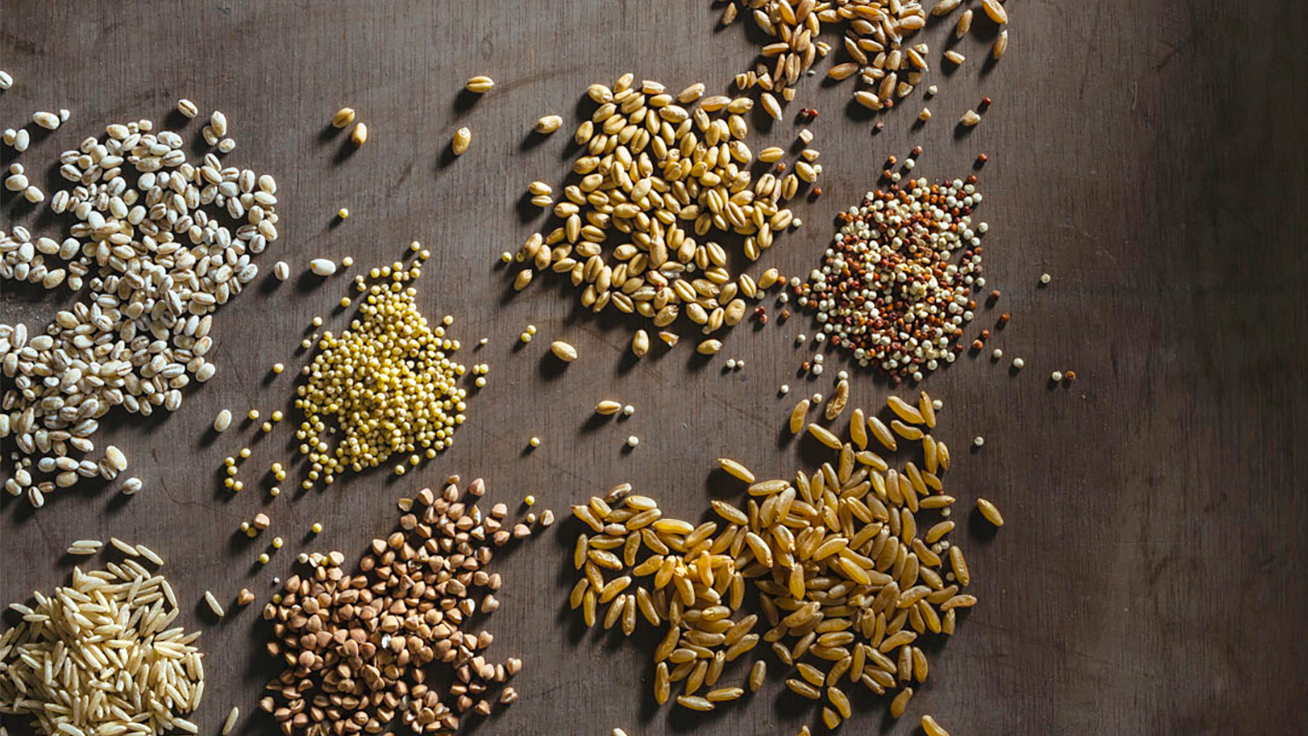1. Barley
WHAT IT IS: The most widely cultivated ancient grain, which is notably used in beer-making (malt).
APPEARANCE: Oval and plump.
FLAVOUR: Neutral, slightly nutty.
2. Millet
WHAT IT IS: A highly digestible cereal grain.
APPEARANCE: Small and round, typically yellow-ish.
FLAVOUR: Subtle, with hazelnut and corn notes.
3. Wheat berries
WHAT IT IS: Whole wheat kernels that have been stripped of only their non-edible husk.
APPEARANCE: Oval and as plump as barley.
FLAVOUR: Nutty, almost sweet.
4. Spelt
WHAT IT IS: An ancient grain that dates back to the Bronze Age.
APPEARANCE: Small and oblong, like a miniature almond.
FLAVOUR: Strong and reminiscent of hazelnuts.
5. Quinoa
WHAT IT IS: This grain is a cousin to spinach and beets.
APPEARANCE: Small, round and either red, white or black.
FLAVOUR: Slightly nutty.
6. Kamut
WHAT IT IS: An ancient grain originally from Khorasan, a region in what is now Iran.
APPEARANCE: Like supersized rice.
FLAVOUR: Mild and almost sweet.
7. Buckwheat
WHAT IT IS: A grain in the rhubarb family that’s used to make gluten-free beer (among other things).
APPEARANCE: Triangular and greenish.
FLAVOUR: Intense and slightly bitter.
8. Brown rice
WHAT IT IS: A whole grain with only the husk removed to preserve a maximum of nutrients.
APPEARANCE: Long and dark.
FLAVOUR: Neutral, with hazelnut notes.
All of these grains are readily available in a variety of forms, including whole, flaked, puffed and milled into flour (for baking). They can be found in bulk stores, natural health food stores and in the organic section of most grocery aisles. Whole, they can add flavour and texture to soups or salads, and can also be cooked up risotto-style or enjoyed as a side. Flaked, they’re great in a bowl of oatmeal, in granola or sprinkled on top of muffins. And puffed grains add a crispy texture to homemade granola bars.
